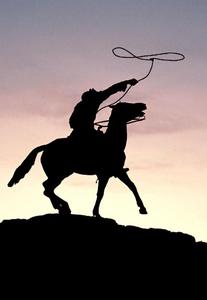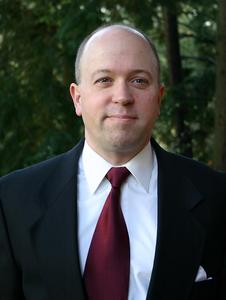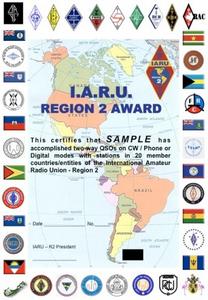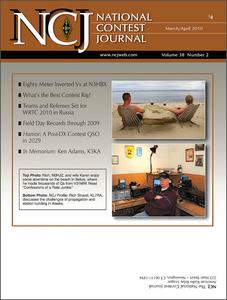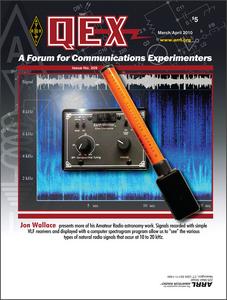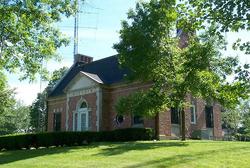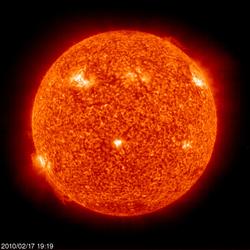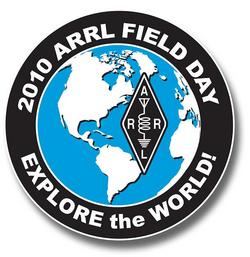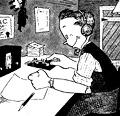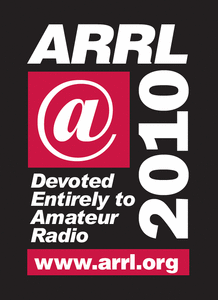 February 18, 2010 John E. Ross, KD8IDJ, Editor
| |||||||||||||
On-the-Air : Calling All Rookies -- and Non-Rookies, Too! Get On the Air for the ARRL Rookie Roundup
The ARRL Rookie Roundup is designed to help newly licensed amateurs build their operating skills on HF. It is a contest specifically for those new to Amateur Radio, similar to the ARRL Novice Roundup that ran from 1952 until 1995. The Rookie Roundup brings the fun and Elmering of the old Novice Roundup into the 21st century. Three Rookie Roundups will be held each calendar year: SSB in April, RTTY in August and CW in December. Read more here. ARRL Leadership : Rod Blocksome, K0DAS, Appointed Midwest Division Vice Director
ARRL President, Kay Craigie, N3KN, has appointed Rod Blocksome, K0DAS, of Robins, Iowa, as the new Vice Director in the Midwest Division. The position became vacant when Midwest Division Director Bruce Frahm, K0BJ, was elected ARRL Vice President at the 2010 ARRL Board of Directors Annual Meeting and Vice Director Cliff Ahrens, K0CA, moved into the Director position. "I'm honored to be selected as the Vice-Director of the ARRL Midwest Division and am looking forward to serving the division hams to the best of my ability," Blocksome told the ARRL. "I grew up in Kansas, lived in Iowa and have traveled to more than 50 different countries, so I hope to bring my Midwestern roots - as well as a multi-cultural/international perspective - to this position." Read more about Blocksome here. ARRL Leadership : Grant Hopper, KB7WSD, Appointed Northwestern Division Vice Director
ARRL President, Kay Craigie, N3KN, has appointed Grant Hopper, KB7WSD, of Everett, Washington, as the new Northwestern Division Vice Director. The position became vacant when no one submitted the necessary election materials needed to run for the Vice Director position. Hopper is an attorney and serves as an ARRL Volunteer Counsel (VC). "I'm excited to serve the Northwest Division," Hopper said. "We have a phenomenal number of talented, innovative, committed, and generous hams here in the Northwestern Division. I look forward to not only doing what I can to support their efforts and the activities within the division, but also representing their interests up at the national level. From my community and volunteer activities -- as well as my law practice -- I tend to think of myself as a 'behind the scenes' sort of person, bringing people together, examining issues and solving problems. I think those skills will serve me well as a Vice Director and I'm glad I can share them for the benefit of Amateur Radio." Read more about Hopper here. Eye on Awards : More on the IARU Region 2 Award
Since the announcement on the ARRL Web site of the IARU Region 2 Award last week, Region 2 officials have been busy answering question from amateurs all over the world about this award, first introduced in October 2007. According to IARU Region 2 Secretary Ramón Santoyo, XE1KK, officials have analyzed the questions and have now clarified the rules, making them easier to understand. You can access the newly rewritten rules on the IARU Region 2 Web site. ARRL Publications: Check Out the March/April 2010 NCJ
The March/April issue of NCJ, The National Contest Journal, is filled with the latest news from the contesting world. Whether you are new to contesting or are a seasoned pro -- or somewhere in the middle -- you will find something in NCJ just for you. In addition to all of the exciting articles in the March/April issue, you will find all of the regular columns and features that you expect from NCJ: "Workshop Chronicles," by Don Daso, K4ZA; "Contest Tips, Tricks and Techniques," by Gary Sutcliffe, W9XT; "VHF-UHF Contesting," by Jon Jones, N0JK; "RTTY Contesting," by Don Hill, AA5AU; "Propagation," by Carl Luetzelschwab, K9LA; "Contesting on a Budget," by Ralph Bellas, K9ZO; "Software for Contesters" by Pete Smith, N4ZR, and "Contesting 101," by Kirk Pickering, K4RO. NCJ is published six times a year by the ARRL; it is edited by Al Dewey, K0AD. NCJ is what every contester needs in his or her shack -- subscribe today! Read more here. ARRL Publications: QEX -- the March/April 2010 Issue
The March/April issue of QEX is coming soon, and it is full of theoretical and practical technical articles that you won't want to miss. QEX is the ARRL's "Forum for Communications Experimenters." Published bimonthly, it features technical articles, columns and other items of interest to radio amateurs and communications professionals. The mission of QEX is threefold: To provide a medium for the exchange of ideas and information among Amateur Radio experimenters; to document advanced technical work in the Amateur Radio field, and to support efforts to advance the state of the Amateur Radio art. QEX is edited by Larry Wolfgang, WR1B. Subscribe to QEX today. Read more here. W1AW News: W1AW Announces New Schedule for Digital Bulletin Transmissions
Beginning Monday, March 15, W1AW, the Hiram Percy Maxim Memorial Station, will alternate the digital modes used for its digital bulletin transmissions. While Baudot, PSK31 and MFSK16 still make up the digital mode complement, W1AW Station Manager Joe Carcia, NJ1Q, says that the schedule will be altered to give more exposure to PSK31 and MFSK16. "Because of time constraints and the varying lengths of digital bulletins, there were many instances where only Baudot was used," he said. "With the new schedule, amateurs preferring either PSK31 or MFSK16 will no longer find these modes secondary." Read more here. Solar Update
Tad "The Sun did not shine, it was too wet to play" Cook, K7RA, reports: We have been seeing improved conditions with moderate sunspot activity, and we should keep seeing these good conditions this weekend for the ARRL International DX Contest (CW). The average daily sunspot number for the past week was 38.7, down 4.6 points from the prior week, but the average daily solar flux rose 4 points to 90.6. The predicted solar flux for February 18-22 is 88, 88, 86, 85 and 84. The planetary A index for the same period is predicted at 10, 10, 5, 5 and 5. Look for more information on the ARRL Web site on Friday, February 19, including a look at some new resources for grabbing up-to-the-minute data from ionospheric sounders. These are very useful for studying HF propagation paths and understanding phenomena that we recently discussed on 75 meter short-skip propagation. For more information concerning radio propagation, visit the ARRL Technical Information Service Propagation page. This week's "Tad Cookism" brought to you by Dr Seuss' The Cat in the Hat. ARRL Field Day : 2010 Field Day Packets Now Available
It's that time of year again -- time to start gearing up for ARRL Field Day, June 26-27, 2010! ARRL's flagship operating event -- always held the fourth full weekend in June -- brings together new and experienced hams for 24 hours of operating fun. Field Day packets are now available for download and include the complete rules (including changes for 2010), as well as other reference items such as forms, ARRL Section abbreviation list, entry submission instructions, a Frequently Asked Questions section, guidelines for getting bonus points, instructions for GOTA stations, a kit to publicize your event with the local press and more. W1AW News: March W1AW/West Coast Qualifying Run Schedule
The March schedules for the W1AW and West Coast Qualifying Runs were inadvertently left out of the March issue of QST. The March schedules for W1AW are as follows: Friday, March 5 at 10 PM EST (Saturday, March 6 at 0300 UTC) for 10-25 WPM and Tuesday, March 16 at 7 PM EDT (2300 UTC) for 10-40 WPM. The West Coast Qualifying run will be transmitted by station K6KPH on Saturday, March 13 at 2 PM PDT (2200 UTC) for 10-35 WPM. The run will be transmitted simultaneously on 3581.5, 7047.5, 14047.5, 18097.5 and 21067.5 kHz. This Week on the Radio This week, the ARRL International DX Contest (CW) is February 20-21. There is another NCCC Sprint Ladder on February 19. The Feld Hell Sprint is February 20, the Run for the Bacon QRP Contest is February 22 and the SKCC Sprint is February 24. Next week, look for an NCCC Sprint Ladder on February 26. The Russian PSK WW Contest and the CQ 160 Meter Contest (SSB) are on February 26-27. The REF Contest (SSB), the EPC WW DX Contest, the UBA DX Contest (CW), the Mississippi QSO Party and the North American QSO Party (RTTY) are all on February 27-28. The High Speed Club CW Contest is February 28. The North Carolina QSO Party is February 28-March 1. The ARS Spartan Sprint and the AGCW YL-CW Party are both on March 2. All dates, unless otherwise stated, are UTC. See the ARRL Contest Branch page, the ARRL Contest Update and the WA7BNM Contest Calendar for more info. Looking for a Special Event station? Be sure to check out the ARRL Special Event Station Web page. New ARRL Web Site Coming Soon
After more than two years of planning, designing and writing, we here at the ARRL are eagerly anticipating the launch of the new ARRL Web site. We've been able to make the online experience easier for our members -- from the online store, to registering for a class, to finding a club -- plus we've created a new, enhanced member profile with many more options available. We've made improvements with you in mind, making sure that we've created the easiest, most enjoyable online experience possible. The new Web site will be available at the end of February. ARRL Continuing Education Course Registration
Registration remains open through Sunday, February 21, 2010, for these online course sessions beginning on Friday, March 5, 2010: Amateur Radio Emergency Communications Level 1; Antenna Modeling; Radio Frequency Interference; Antenna Design and Construction; Ham Radio (Technician) License Course; Propagation; Analog Electronics, and Digital Electronics. To learn more, visit the CEP Course Listing page or contact the Continuing Education Program Coordinator. | |||||||||||||
